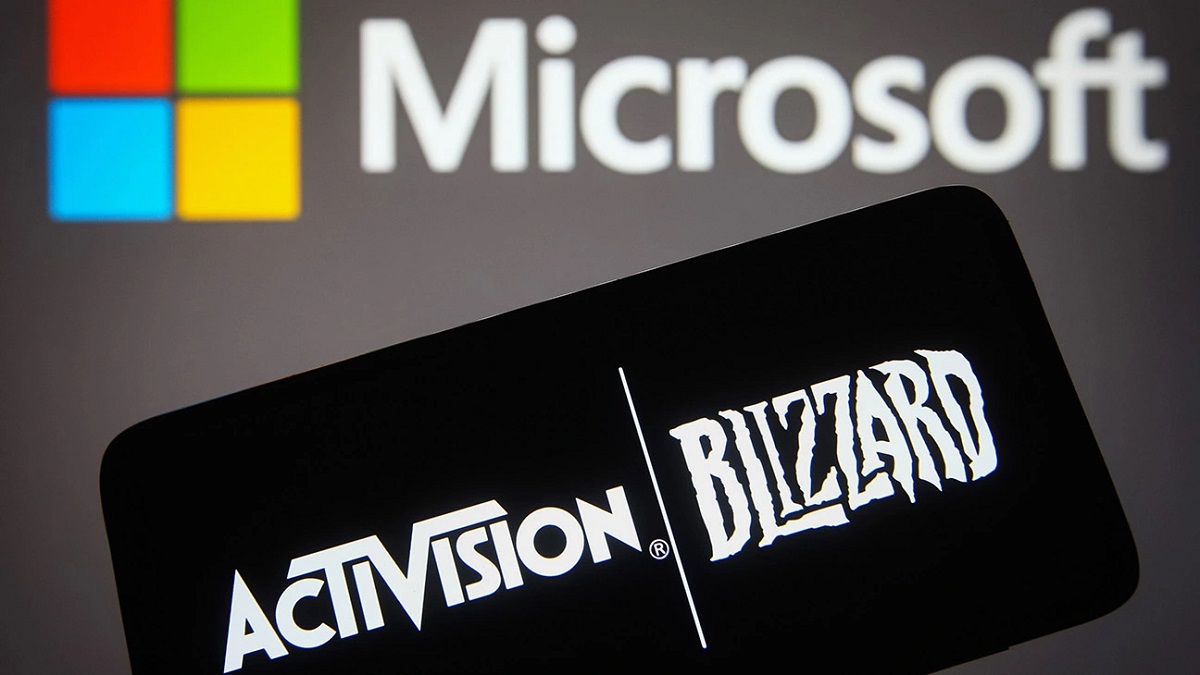FTC's Appeal Challenges Court Ruling On Microsoft-Activision Merger

Table of Contents
The FTC's Arguments Against the Merger
The FTC's core argument rests on the belief that the Microsoft-Activision merger would create an anti-competitive environment, stifling innovation and harming consumers. Their concerns are multifaceted:
Concerns about Anti-Competitive Behavior
The FTC argues that the merger would significantly reduce competition within the gaming market. Specifically, they highlight:
- Reduced competition in console gaming: The combined entity would control a substantial portion of the console gaming market, potentially leading to less choice and higher prices for consumers. This includes not just Xbox, but also the potential for impact on PC and cloud gaming markets.
- Potential for higher prices for gamers: With less competition, Microsoft could theoretically increase the prices of Activision Blizzard games, subscriptions, and even hardware. This could disproportionately impact budget-conscious gamers.
- Limited choice of games and gaming platforms: The FTC fears that Microsoft might make Activision Blizzard games exclusive to Xbox, limiting consumer choice and potentially harming competing platforms like PlayStation.
- Exclusion of rival game developers and publishers: The merger could create barriers to entry for smaller game developers and publishers, hindering innovation and competition in the longer term. The potential for Microsoft to leverage its combined market power to disadvantage rivals is a key FTC concern.
Call of Duty's Central Role
The FTC specifically emphasized the role of Call of Duty, Activision Blizzard's flagship franchise, as a major point of contention. The popularity and market dominance of Call of Duty make its exclusivity a significant concern.
- Call of Duty's exclusivity concerns: The FTC worries that Microsoft might make Call of Duty exclusive to Xbox, giving it an unfair competitive advantage over rivals like PlayStation and Nintendo. This would impact not only console sales but also subscription services.
- Potential impact on PlayStation and other platforms: The loss of Call of Duty on PlayStation could significantly diminish its appeal, potentially leading to a decline in market share for Sony.
- The FTC’s proposed remedies to prevent anti-competitive behavior: The FTC originally proposed remedies such as behavioral remedies that would have prevented Microsoft from engaging in anti-competitive actions, including ensuring the continued availability of Call of Duty on competing platforms. However, the court rejected these proposed solutions.
The Court's Initial Ruling and its Rationale
A US District Court judge ultimately ruled in favor of Microsoft, dismissing the FTC's attempt to block the merger.
Key Points of the Court's Decision
The court's decision centered on several key points:
- The court's assessment of the FTC's arguments: The court found the FTC's arguments regarding anti-competitive behavior unconvincing, particularly regarding the impact on the broader gaming market.
- The court's evaluation of the potential anti-competitive effects: The court determined that the potential anti-competitive effects of the merger were not significant enough to warrant a block. This was a critical point of contention.
- Mention any specific evidence the court considered: The court considered various pieces of evidence presented by both sides, including expert testimony and market analysis, in reaching its decision. The weighing of this evidence remains a key point of contention in the appeal process.
Criticisms of the Court's Ruling
The court's decision has faced considerable criticism:
- Arguments that the court underestimated the importance of Call of Duty: Critics argue that the court downplayed the significance of Call of Duty's market dominance and its potential for exclusivity.
- Arguments that the court's analysis of competitive effects was flawed: Many experts believe the court's analysis of the competitive effects of the merger was insufficient and failed to adequately account for long-term consequences.
- Public and expert opinions criticizing the ruling: The ruling sparked widespread debate among gaming enthusiasts, industry analysts, and legal experts, many of whom believe the court's decision was short-sighted.
The FTC's Appeal Process and Potential Outcomes
The FTC's appeal is now underway.
The Appeal's Grounds
The FTC's appeal is based on several legal grounds:
- Legal precedents the FTC is citing: The FTC will likely cite numerous legal precedents related to antitrust law and merger regulation.
- Specific errors of law or procedure the FTC alleges: The FTC will argue that the lower court made specific errors in its legal interpretation and procedural handling of the case.
- The legal strategy the FTC is likely to employ: The FTC will likely focus on challenging the court's assessment of the competitive effects of the merger, especially regarding Call of Duty.
Potential Impacts of the Appeal
The outcome of the appeal could have far-reaching consequences:
- The future of the Microsoft-Activision merger: The appeal could ultimately result in the merger being blocked or potentially lead to further concessions from Microsoft.
- The regulation of mergers and acquisitions in the tech industry: The appeal's outcome will set a significant precedent for future mergers and acquisitions in the tech sector, particularly within the gaming industry.
- The future of competition in the video game market: The decision will shape the competitive landscape of the video game market for years to come, influencing innovation, pricing, and consumer choice.
Conclusion: FTC Appeal: The Future of the Microsoft-Activision Merger Remains Uncertain
The FTC's appeal against the court's decision to allow the Microsoft-Activision merger represents a critical juncture for the gaming industry and antitrust regulation. The core arguments revolve around the potential for anti-competitive behavior, particularly regarding the exclusivity of Call of Duty. While the court initially dismissed the FTC's concerns, the appeal introduces significant uncertainty, potentially impacting the merger's future, future industry mergers, and the overall competitive dynamics of the video game market. Follow the developments in the FTC's appeal against the Microsoft-Activision merger to stay informed about this crucial case impacting the future of the gaming industry.

Featured Posts
-
 Ford Vs Byd In Brazil Maluf And The Future Of Electric Mobility
May 13, 2025
Ford Vs Byd In Brazil Maluf And The Future Of Electric Mobility
May 13, 2025 -
 Preload Doom The Dark Ages Now Early Access Release Date And Time
May 13, 2025
Preload Doom The Dark Ages Now Early Access Release Date And Time
May 13, 2025 -
 Doom Eternal Dark Ages Location Unveiled On Ps 5
May 13, 2025
Doom Eternal Dark Ages Location Unveiled On Ps 5
May 13, 2025 -
 Leonardo Di Caprios Next 5 Films A Complete Guide
May 13, 2025
Leonardo Di Caprios Next 5 Films A Complete Guide
May 13, 2025 -
 Strengthening Cross Border Cooperation To Reduce Crime
May 13, 2025
Strengthening Cross Border Cooperation To Reduce Crime
May 13, 2025
